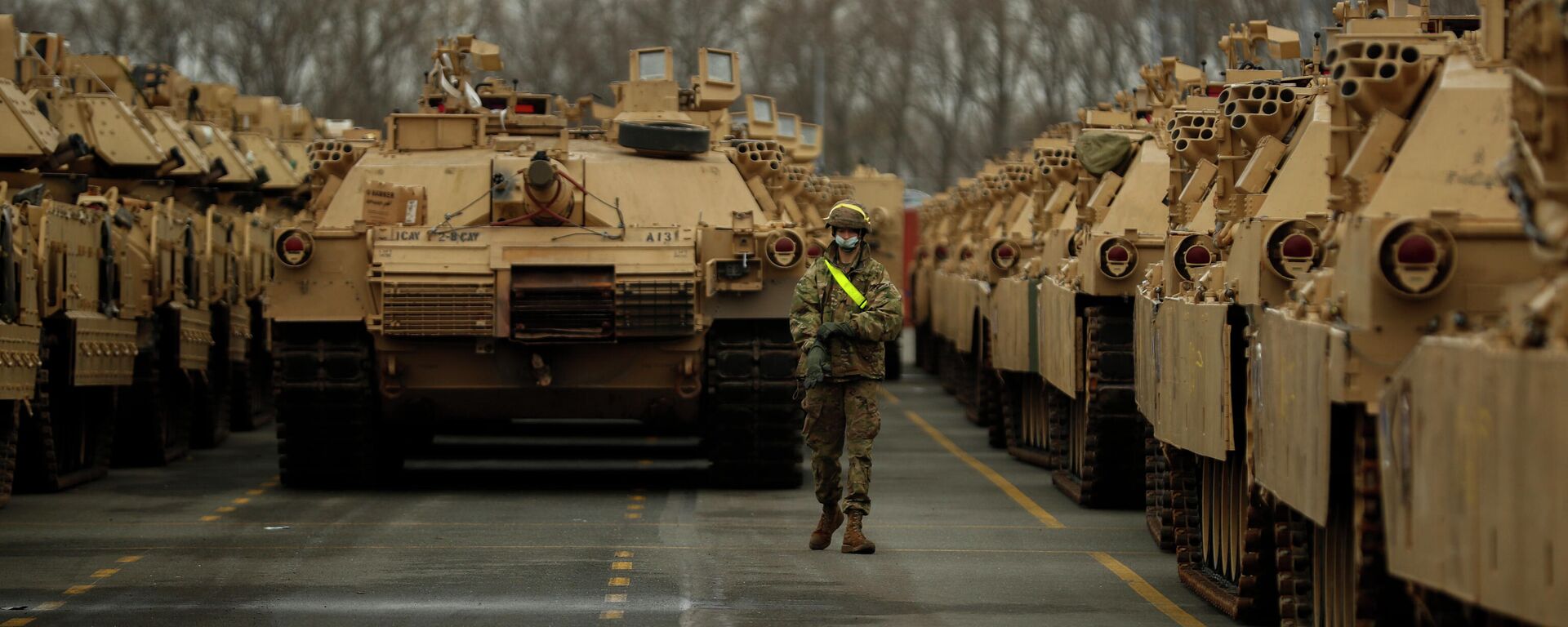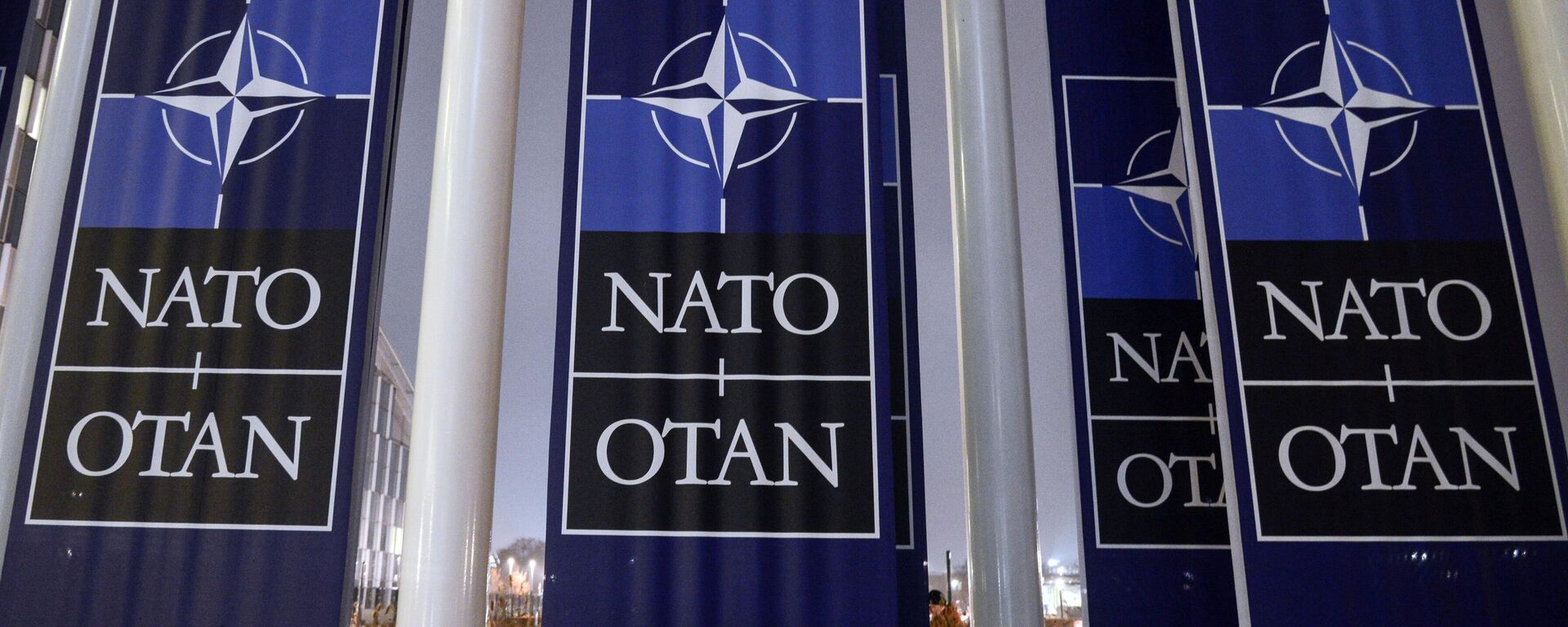Retired US General Urges NATO to Keep Ukraine Out for the Sake of Peace With Russia
13:01 GMT 27.01.2022 (Updated: 13:17 GMT 27.01.2022)
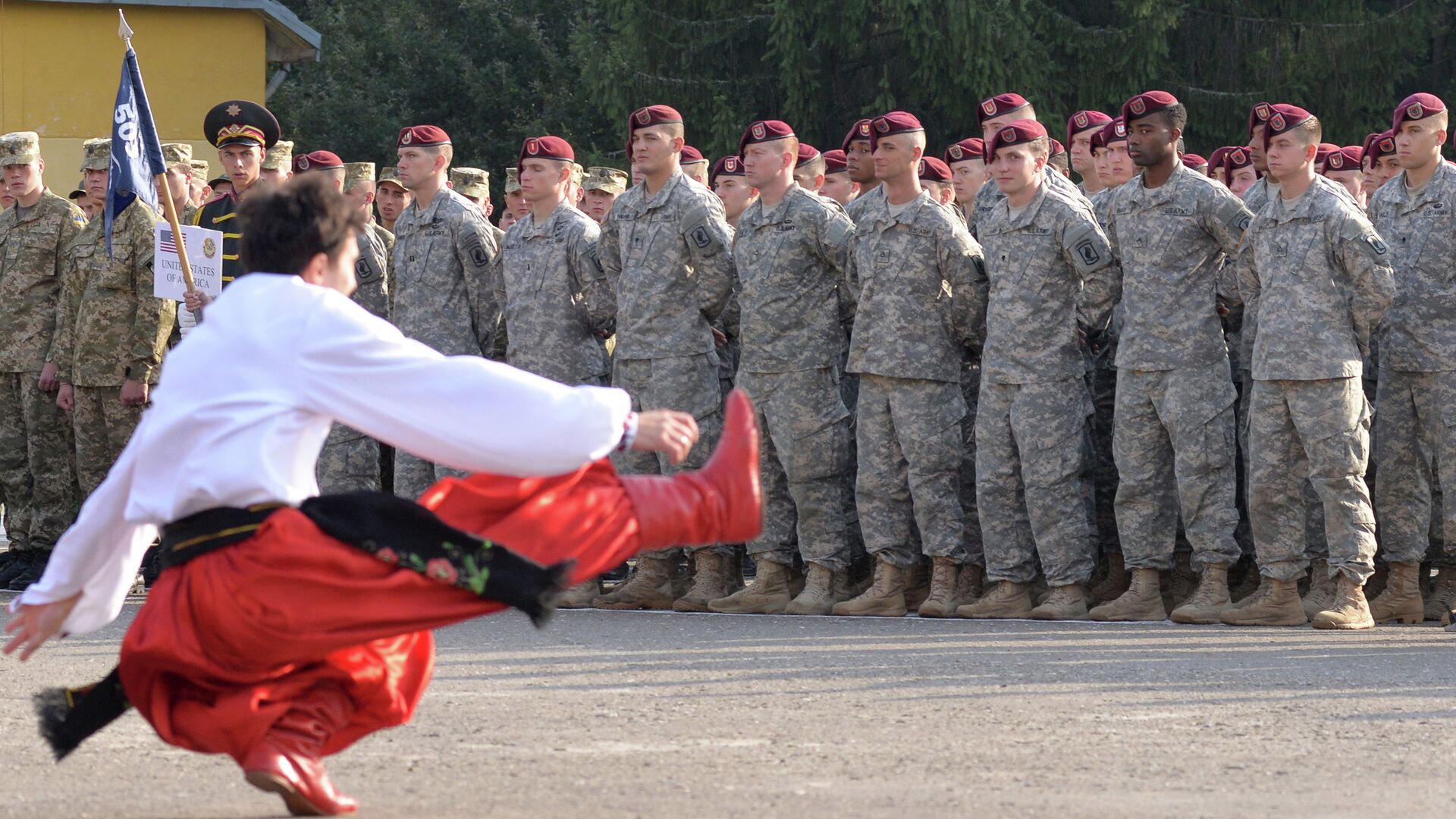
© AFP 2023 / YURKO DYACHYSHYN
Subscribe
Russia-NATO relations have hit a low unseen since the Cold War over the Western alliance’s eastward creep, and plans to incorporate Ukraine into the bloc. Last month, Moscow offered the US and its allies a way out of the crisis via a pair of security proposals which would guarantee Ukraine’s non-bloc status. Washington has rejected the proposals.
Ukraine’s membership in NATO would not serve the critical security interests of the North Atlantic Alliance, and the Eastern European nation should be endowed with Austria-style neutrality in order to avoid accidentally igniting World War III, retired US Army Lt. Gen. Dell Dailey has recommended.
In a piece for paleo-conservative news magazine The National Interest, Dailey and contributor James P. Farwell warned that “time is growing short” to avoid a conflagration, and recommended a US strategy of “equilibrium,” rather than the traditional policy “containment,” toward Russia.
“That notion doesn’t view Russia as a friend or ally,” Dailey stressed, emphasising that “equilibrium” would not amount to any sort of capitulation to Moscow, but rather an effort to “strike a balance for a stable order in Europe rooted in longer-term state-to-state relationships.”
Russia, the retired general suggested, no longer has Soviet-style “expansionist ambitions,” with nationalism and fears of Western-backed colour revolutions said to drive the Kremlin’s security concerns.
Accordingly, Dailey recommended, first and foremost, keeping the post-Soviet republics of Ukraine and Georgia out of the Western alliance.
“These nations enjoy no right to join NATO; membership is invitation only. Western security interests don’t require making them NATO members, and the West, need not insinuate them so closely that Russia feels the relationship amounts to membership,” the retired officer noted.
“Ukraine could accept a status similar to Austria’s. Austria is a democracy that does business with all sides and maintains its independence. Such status won’t harm the West, and would remove the threat that [Vladimir] Putin most complains about. Ukraine needs to be a part of that negotiation,” he added.
Russia, for its part, should come to terms with Ukraine’s efforts to build “a successful democracy,” according to Dailey, and both Moscow and the West should work toward some sort of “mutual agreement” to “stop meddling in one another’s internal affairs,” and also reach an arrangement on missile deployments.
The former general also calls on Russia to make a formal commitment not to use the Nord Stream 2 gas pipeline “as political leverage to influence European politics,” and to crack down on criminal cyberhacking against the West, whether by the Russian state, proxies or transnational criminal groups operating in the country.
The former officer also calls on Russia and the West to search for “common ground that recognises the existential threat posed by China’s ambition to establish global military and economic supremacy by 2049,” claiming that “China’s achieving [of] that ambition would pose an existential threat to both sides.”
Publicly, Russia has rejected efforts by Western powers to try to build a wall in its relations with the People’s Republic, with Russian officials recently characterising ties with Russia’s Asian neighbour as the “best in their history” amid growing tensions with the US.
Neutral Ukraine Idea Not New
The idea of a neutral Ukraine situated between Russia and NATO and cooperating with both proposed by Dailey is not new, and served as the de facto foreign policy of Ukrainian President Leonid Kuchma between the mid-1990s and mid-2000s. Kuchma’s “multivector” strategy, designed to balance eastern and western interests, saw support from Russian presidents Boris Yeltsin and Vladimir Putin. This balance was upset in 2005 with the victory of the Orange Revolution, a Western-backed soft coup in Kiev which brought to power pro-NATO and pro-EU president Viktor Yushchenko.
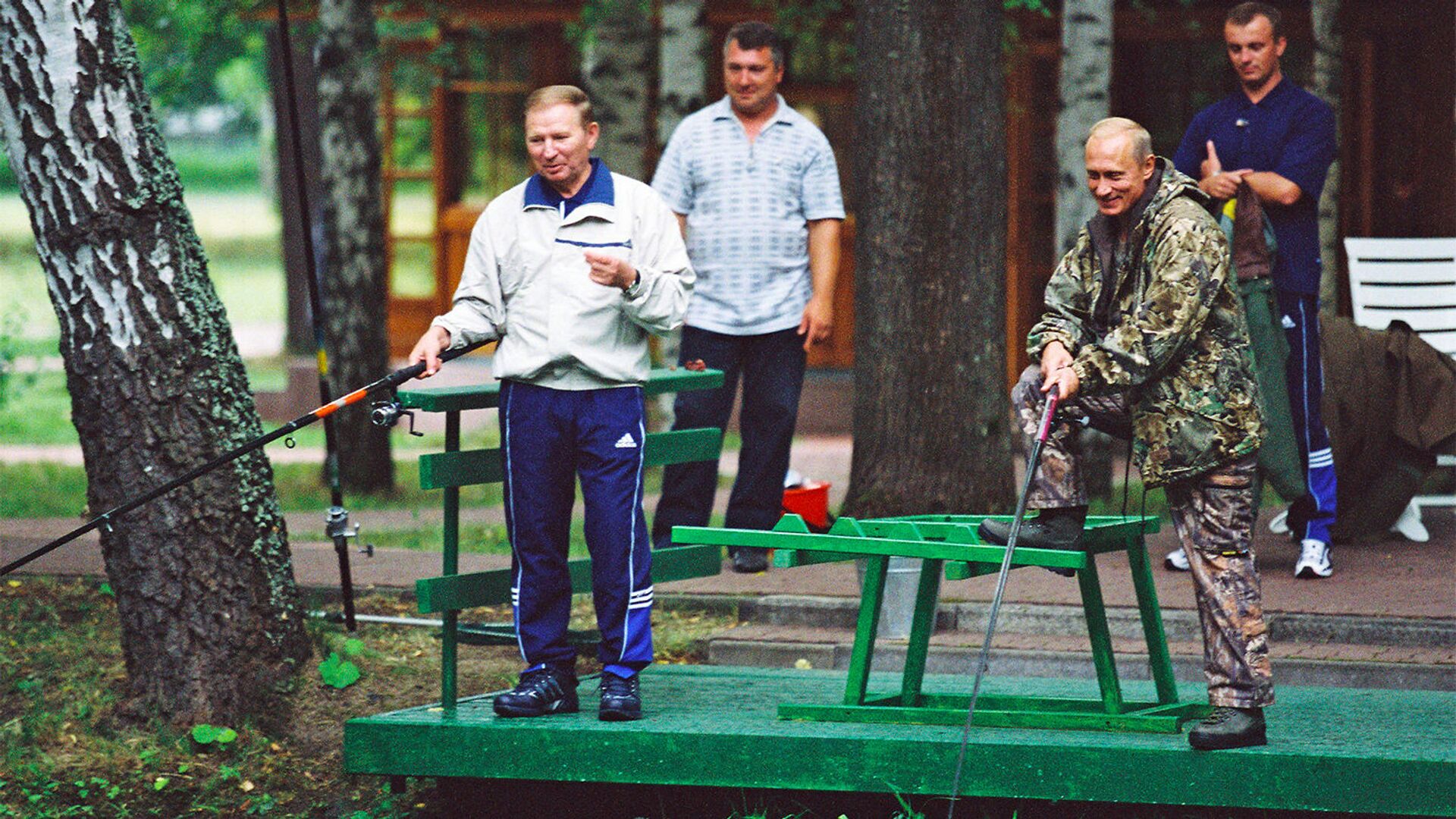
Vladimir Putin, fishing with Ukrainian President Leonid Kuchma in 2002
© Photo : kremlin.ru
Yushchenko lost the 2010 presidential elections, garnering just 5.45 percent of the vote, and was replaced by Viktor Yanukovych, a centrist often described by Western officials as ‘pro-Russian’, but who like Kuchma sought to keep Ukraine out of any alliance – whether it be NATO or the Russian-led Collective Security Treaty Organisation. Yanukovych was overthrown in a second colour revolution in 2014 after trying to back out of signing an EU association agreement in favour of the Russia-led Eurasian Economic Union.
US officials have made no secret of their efforts to pull Ukraine westward, with Obama-era under-secretary of state Victoria Nuland bragging openly in 2014 about how the United States spent $5 billion to “promote democracy” in Ukraine since 1991.
The 2014 coup sparked the current crisis in relations between Russia and the West, with Crimea breaking off from Ukraine and rejoining Russia, and a civil war breaking out in the Donbass after local residents refused to recognise the new authorities in Kiev. In recent months, The US and its NATO allies have accused Russia of engaging in a military buildup on Ukraine’s borders, ostensibly to carry out an “invasion” of the country. Moscow has vocally dismissed these claims and accused the West of pumping up war fears to justify the Western bloc’s militarisation of Eastern Europe.
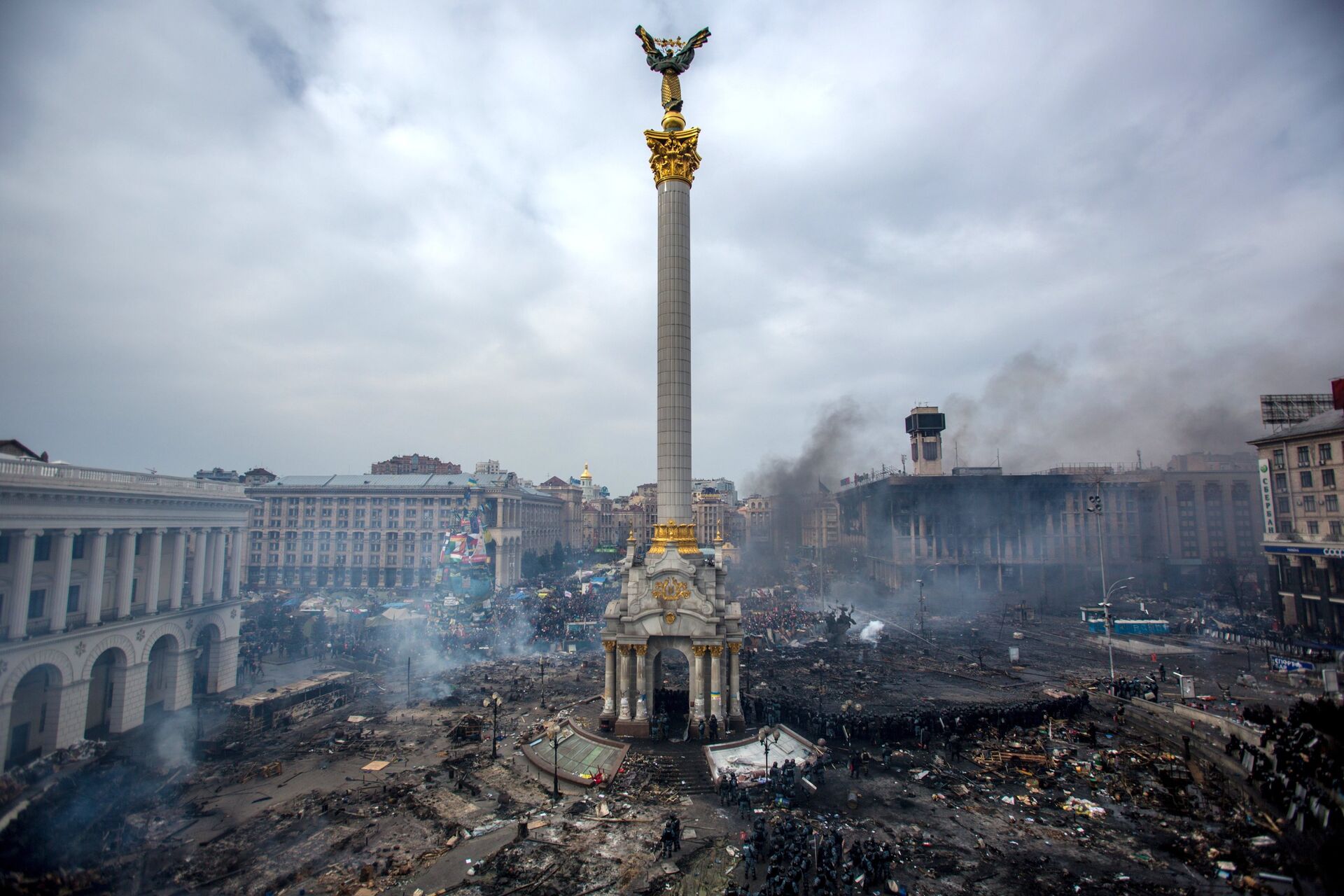
Fire, smoke and protesters on Maidan square in Kiev. February 22, 2014.
© Sputnik / Andrey Stenin
/ In December, Russia offered the US and NATO a pair of comprehensive security proposals aimed at ending the crisis – recommending that both sides significantly reduce troop, missile, aircraft and warship deployments and operations in areas where they may be perceived as a threat to the other side. Russia also asked the US and its allies to scrap plans to incorporate Ukraine or any other post-Soviet republic into the bloc, and requested that NATO limit the deployment of troops and military equipment in countries which joined the alliance since the end of the Cold War.
On Wednesday, the United States and NATO provided Russia with formal written responses to its security proposals. In a press briefing, Secretary of State Antony Blinken indicated that Russia was told in no uncertain terms that Ukraine would remain free to choose its own alliances. On Thursday, Russian Foreign Minister Sergei Lavrov lamented that the US did not respond positively to the central proposals in Russia’s security guarantee concept – NATO’s eastward expansion and the deployment of offensive strike systems.

